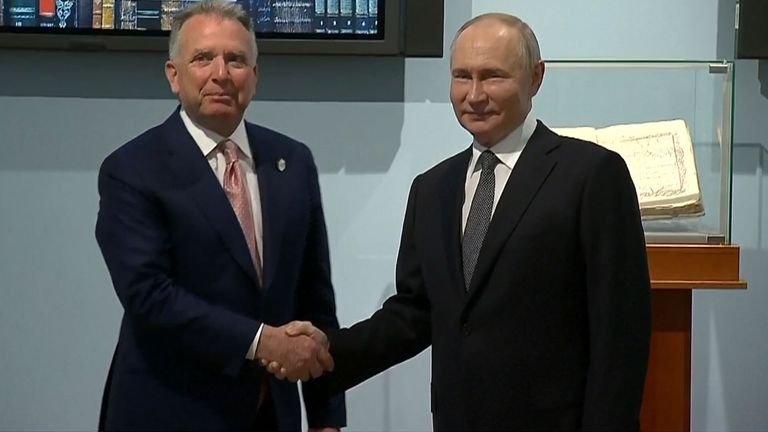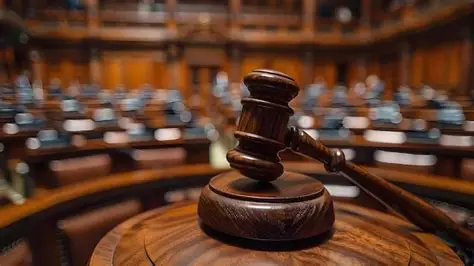Russian President Vladimir Putin met privately with the new U.S. ambassador in Moscow this week, marking the first face-to-face diplomatic engagement since late spring. The Kremlin described the conversation as “constructive,” hinting at a possible easing of the frosty standoff between Washington and Moscow.
The talks come at a time of heightened tensions over Ukraine, cybersecurity, and sanctions policy. While details of the meeting remain undisclosed, both sides signaled cautious optimism, suggesting channels of dialogue remain open despite deep geopolitical rifts.
This high-level engagement may represent a strategic recalibration by both nations as they navigate global instability, shifting alliances, and economic competition.
Officials from the Russian Foreign Ministry emphasized that the U.S. envoy’s visit could be the start of renewed back-channel diplomacy. In a brief statement, the Kremlin confirmed that the ambassador presented credentials before entering extended private talks with Putin.
The meeting reportedly included discussions on strategic stability, embassy staffing, and the future of nuclear arms control agreements. The U.S. State Department, while restrained in tone, acknowledged the importance of maintaining communication amid deteriorating trust.
Global analysts view the meeting as a potential reset, though not a guarantee of bilateral cooperation in an increasingly fragmented world order.
In Washington, reaction to the envoy’s meeting was measured but significant. Several Congressional leaders expressed cautious support for ongoing diplomatic channels but urged vigilance.
“Dialogue is essential, but not at the cost of American leverage,” said a Senate Foreign Relations Committee spokesperson. The Biden administration has not yet released a detailed summary of the envoy’s instructions or objectives, suggesting that the talks remain preliminary in nature. However, diplomatic watchers see this as a rare opportunity to establish new guardrails around global conflict flashpoints.
Although the bilateral relationship remains tense, the tone of the Moscow talks has stirred debate over what could come next. Key areas of possible cooperation include arms control treaties, prisoner exchanges, and cybercrime prevention. Experts say these issues are mutually important and could serve as starting points for broader negotiations. The constructive framing of the meeting is a notable shift after months of sanctions, military drills, and public accusations.
Still, the lack of transparency means global stakeholders will be watching closely for any signs of real progress or further deterioration.
This rare diplomatic outreach holds global implications, especially for NATO allies, Ukraine, and neutral states. If Washington and Moscow reopen working-level communications, it could help reduce the risk of miscalculation in Eastern Europe or the Pacific. The outcome of this engagement will shape global narratives on multilateral cooperation and the geopolitical chessboard heading into 2026

